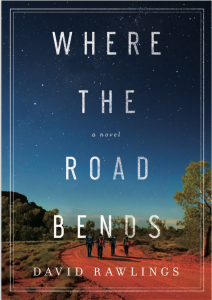by David Rawlings, @DavidJRawlings
I really feel sorry for magicians who still enjoy watching magic shows.
It must be hard to enjoy another magician’s skills when you know how the trick works. Once you know how it’s done, it can remove the mystic for you, as well as your capacity to be amazed. Or you watch the performance mentally checking off how you’d improve it.
I’m like that with music. I’ll watch a band play and it’s very difficult to not notice missed cues, bum notes from the bass guitar or endings where the drummer left everyone behind.
Writers can be the same when we read. We see the structure behind the writing, the characterizations behind the characters and try to guess where the plot is going because we saw the foreshadowing.
It can be hard to enjoy another writer’s skills when you know how the craft works.
We can’t lose our capacity for wonder as readers. I try very hard to take off my professional hat and immerse myself in a story for the sake of reading. Professional development can wait. And this is what I’ve found.
The specialness of words
One of the things that drives me as a writer is that I love language. I like language like my University professors – the cleverer the better. To me, language is the tool with which we create. And the more intricate the tool, the more engaged I am with a story; a world; a character and their journey. Language done well is a joy; I appreciate that the cleverer the turn of phrase the more energy and time has gone into it. Like this:
- Doug Wilson: who described the Left Behind series as “Hardy Boys in the Apocalypse.” That one made me chuckle at the time. Still does.
- Ted Dekker: “The world’s bumper sticker reads: Life sucks, and then you die. Perhaps Christian bumper stickers should read: Life sucks, but then you find hope and you can’t wait to die.” I’m a big admirer of Ted Dekker’s work, but this phrase stayed with me because it painted life as it is, with the reward at the end. A nice tumble in half-pike position.
- Charlie Brooker: “I glide through the social whirl with all the elegance of a dog in high heels.” You can just picture that, can’t you?
- From the movie Interstellar: “We’re just here to be memories for our kids.” At a desperate stage of the movie, this quote summed up a character’s frustration, anger and hopelessness in the moment.
- Frank Peretti: “So what do you do for a living? Staying alive is nice, but you can’t do that forever. It’s how you live the life you have while you have it.” Just a nice piece of advice buried in the book Monster.
- James L Rubart: “Toren stared at her, several emotions flitting across his eyes in a matter of seconds. Surprise. Pain, Anger? No, not anger, frustration. And innocence. And then, resolve.” I just love Jim’s description that means I can picture the change in Toren’s wife’s demeanor, including his misinterpretation of frustration at something it wasn’t. All done in twelve words.

Brilliance in plotting
- The twist in The Sixth Sense. Just. Brilliant. There’s an even better one in The Village by the same writer.
- The foreshadowing in Ted Dekker’s Skin: The small things the characters notice that all piece together in the final few scenes, where you sit back and go “ooohhhh, so that’s what that is.” I love that. Like the black contrails in the sky or the forcefield that keeps characters away from one part of town. (I won’t spoil it for you).
Characters
- Mark Billingham’s Tom Thorne – a hard-nosed detective who is abrasive and rough, but likes country music. What a great, surprising contrast.
- The antagonist in Ben Elton’s Time And Time Again is more than a crusty old academic – Professor McCluskey is so real I could imagine talking to her. And it’s the little things – the wanting cognac for breakfast drawn from the same teapot she’s used for decades, drawing schoolyard level pictures in the steam on a window or drizzling honey on bacon and eggs – that made her real.
I’m glad I read those as a wide eyed reader rather than a craftsman studying the craft.
This also helps me to improve my own work … and become a source of enjoyment for readers. For me, I’ve had readers say they enjoyed it when I wrote:
- “Michael’s future flared into view; downshifting his passion to a hobby and selling it for next-to-nothing on eBay, in between shifts of stocking shelves with things he cared little about.” (From The Baggage Handler – my Christy Award winning debut novel)
- “The siren song of Facebook called to her; a song she could never deny. (Also from The Baggage Handler)
- “Garth came from another era, when a doctor’s advice was carved in Mt. Sinai stone, not up for debate after three minutes on Google.” (From The Camera Never Lies)
- “The scraping of forks on dinner plates echoed through a dining room that could comfortably fit twelve, but was still too small for the three of them.” (Also from The Camera Never Lies).
- “For two hours the ground had changed thirty thousand feet below as the crisscross suburban gray of the city gave way to deep green, which gave way to dusty brown, which gave way to an ochre orange. Now the earth was rich red. It was as if the lifeblood of the country was being cleansed as it flowed back to its heart.” (From Where the Road Bends).
I don’t know if this is hard for you like it is for me. I’d encourage you to put your professional hat away and enjoy someone else’s gift for what it is.
Then, after you’ve savored it, aim for it. But only after you’ve enjoyed it.
Four friends reconnect fifteen years after graduation on a promised trip to the Australian outback. Time has changed them. At graduation life was all about unfulfilled potential. Fifteen years down the track, it feels a lot like regret.
As they get lost in outback Australia they find more than harsh beauty of an unspoilt land… … they discover how the road of life delivered them to where they are now.
And getting back requires them to determine where they’ll go from here.

Based in South Australia, David Rawlings is an award-winning author, and a sports-mad father-of-three with his own copywriting business who reads everything within an arm’s reach. He writes that take you deeper into life, posing questions of readers to explore their own faith and how they approach life.
Where the Road Bends – a novel based in outback Australia – is out now! Why not take a virtual vacation during your time at home?
David’s debut novel – The Baggage Handler – won the 2019 Christy Award for First Novel. His second novel – The Camera Never Lies – focuses on honesty in relationships and is now available.
He is currently signed with Thomas Nelson and represented by The Steve Laube Agency.

